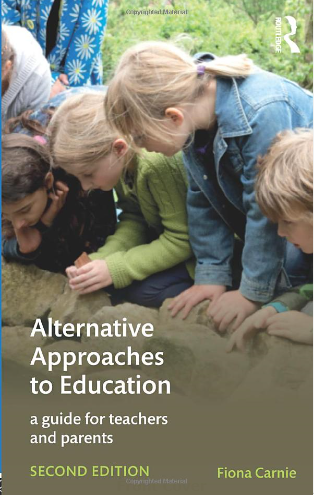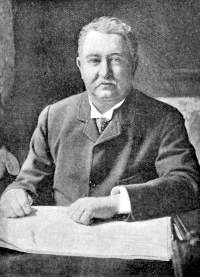15 Ways to Reimagine Education
9. Broaden the National Curriculum.
A national curriculum is a common programme of study in schools that is designed to ensure nationwide uniformity of content and standards in education. The National Curriculum for England was first introduced by the Education Reform Act of 1988.
Many researchers and educationalists believe that a standard curriculum reduces the diversity of skills and knowledge that a child can learn. Psychologist, Dr Peter Gray describes this as one of the seven sins of the education system. He says:
“By forcing all school children through the same standard curriculum, we reduce their opportunities to follow alternative pathways. The school curriculum represents a tiny subset of the skills and knowledge that are important to our society. In this day and age, nobody can learn more than a sliver of all there is to know. Why force everyone to learn the same sliver?”
Dr Peter Gray
The Curriculum is Too Narrow
The Cambridge Primary Review, led by Professor Robin Alexander at the University of Cambridge, was published in 2009 following an in-depth three-year investigation into primary education in England. It said the too narrow curriculum – which was overly focused on reading, writing and maths – was failing generations of children. These limitations still exist today and many worry that this is damaging children’s enjoyment of school, their natural curiosity and their desire to learn.

Sir Ken Robinson, author and international advisor on education has talked widely on this subject. He complains that it’s always that same hierarchy of subjects, with maths and languages at the top and the arts at the bottom.
He claims that this narrow approach is inhibiting students’ creativity and innovation. Without these skills we’re not adequately preparing students for adult life and the fast changing world of work.
The Need for a Holistic Approach
Other critics say that for a 21st century society, the curriculum needs to have a more holistic approach and that teaching soft skills in emotional literacy and mental health is as important, if not more so than academic subjects.

In her book Alternative Approaches to Education, Educationalist, Fiona Carnie says that education is about developing the whole child and should therefore aim to foster creative, emotional, moral and spiritual growth as well as intellectual development.
Music, art, crafts, dance and drama help children learn to express themselves. A focus on moral and emotional development enables young people to learn to live with others in a positive way.
“A broad and holistic approach to education which encompasses all of these aspects is more likely to produce rounded individuals than an approach which focuses almost exclusively on academic achievement.”
Fiona Carnie
A Subject-Led Curriculum Lacks Relevance to the Real World
Carnie goes on to say that for children to make sense of their world it is important to draw out connections between subjects rather than to concentrate on their difference. A curriculum based on topics or themes which relate to real-world issues and children’s own lives, will have more meaning than a rigid subject-based approach.
Lack of Opportunity to Pursue Students’ Interests

Students forced through a standard curriculum have very little time to pursue their own interests. This greatly reduces their potential to learn.
Studies show that when children and young people are able to be self-directed in their choice of subject matter, the learning is much deeper and knowledge is retained for longer.
Conflict with the United Nations Convention on the Rights of the Child (UNCRC)
Advocates for progressive education are also concerned that the National Curriculum – along with many other aspects of the school system – is in conflict with the UNCRC . For example, Article 42 states that “Governments must actively work to make sure children and adults know about the Convention.” However, the UNCRC is yet to be included in the National Curriculum.
Research from Canada shows that children who learn about their rights under the Convention, show increased levels of self-esteem, increased perceived peer and teacher support, a more adult-like understanding of rights and responsibilities, more supportive attitudes toward children of minority status, and more rights-respecting behaviours (Covell and Howe, 2007 and 2008).
You can read more about this in a children’s rights research review by Derry Hannam, a retired head teacher and long-term school inspector, in our Articles and Research section.
Lack of Focus on the Climate Crisis

According to the Teach the Future campaign, only 4% of students feel that they know a lot about climate change, 68% of students want to learn more about the environment, and 75% of teachers feel they haven’t received adequate training to educate students about climate change.
This growing group of students believe that our education systems need to be reformed to reflect the urgency of the climate and ecological crisis. They say:
“It’s not good enough that sustainability is restricted to a few subjects and that most of our teachers and lecturers don’t know enough about it. Our education system must teach the truth and prepare us for the future because we are the future. We demand reform to the education system.”
Teach the Future
The Current Curriculum Exacerbates Social Injustices
It is widely accepted that the education system passes the dominant ideas of society from one generation to the next, in ways which can reinforce inequalities. Traditional curricula have been criticised for presenting a partial and one-sided view of history and of society, which exacerbates inequalities and prejudices against minority groups (Max Hope, 2019):
- Racist Curriculum
For example, critics say that the curriculum fails to educate students about black and ethnic minority histories and cultures.

In 2015 a protest movement known as Rhodes Must Fall launched with the aim of having a statue removed from the University of Cape Town that commemorated the colonialist Cecil Rhodes.
Protesters felt that the statue was oppressive and they mobilised action against institutional racism at the university.
They said that the “fall of Rhodes” was symbolic for the inevitable fall of white supremacy at their campus. Since the statue was removed, there has been a great deal of debate about decolonising the curriculum but very little change.
It is argued that curriculum content is dominated by white, male, western, capitalist, heterosexual, European world views. This means the content under-represents and undervalues the perspectives and experiences of those who do not fit into these categories. You can read more about this in the following articles:
The Long, Insidious Shadows of Colonialism, by Jeffrey Boakye
The Black British History You May Not Know About, by By Kameron Virk, BBC Newsbeat
Education Analyst, Carol Black powerfully shows the damage that’s done through prioritising white history and replicating western schooling and culture all over the world, in her film, Schooling the World.
Teacher and author of The Antiracist Educator, Pran Patel tells his story of how a colonised curriculum affected his experience of education in the UK as a pupil, teacher and secondary school senior leader in his TED talk below:
Have a look at our campaigns section to find out about campaigns working to decolonise the curriculum. You will also find some links to anti-racism resources on our School Support page.
- Sexist Curriculum
History is told from a male perspective and has huge omissions regarding the contribution women have made to society. A few years ago, around 50,000 people signed a petition to include more influential females in an A Level Politics syllabus seeing as only one woman had been included in a list of 14 political thinkers who students were required to study.
The petition came after another student campaigned to have female composers included on an A-level Music syllabus, after realising that women didn’t feature at all among the 63 compositions selected by the examining board.
- Homophobic Curriculum

Ruth Hunt, Chief Executive of lesbian, gay, bisexual and transgender (LGBT) rights charity, Stonewall says that how young people see themselves, each other and the world around them is shaped by what they learn about at school. For every young person to be prepared for life in modern Britain, it’s vital that their curriculum reflects the full diversity of the world they live in.
This includes teaching about LGBT people and themes. While Britain has made huge strides towards LGBT equality in recent decades, anti-LGBT bullying and language unfortunately remain commonplace in Britain’s schools.
When it comes to learning about LGBT people and themes, pupils report that these are absent from their curriculum. Stonewall’s 2017 School Report found that:
- 2 in 5 LGBT pupils are never taught anything about LGBT matters in school or college.
- 3 in 4 pupils have never learnt about or discussed bisexuality in school.
- 3 in 4 pupils have never been taught about or discussed gender identity and what trans means.
This negatively impacts upon all pupils. When LGBT people and their experiences aren’t discussed at school, it gives the impression that LGBT people don’t exist, or that these issues shouldn’t be discussed at school. It prevents pupils from understanding and celebrating difference.
When a curriculum reflects the diversity of the world we live in, including LGBT people, all pupils can be supported to develop inclusive and accepting attitudes towards those who are different to them, and feel proud of the things that make them different themselves. Ruth Hunt says:
“A crucial part of tackling this problem is delivering a curriculum that includes LGBT people and their experiences. An inclusive curriculum reflects the diversity of pupils’ lives and experiences in modern Britain. It helps all pupils feel included, making them much more likely to engage with their learning and perform better.”
Ruth Hunt, Stonewall
Please visit our Schools Support page for inspiration for bringing LGBT themes into the classroom.
- Schools Must Advance Social Justice
These are just a few examples. The injustices don’t stop with ethnic groups, gender and sexual orientation, but apply to disability and class too. Advocates for progressive education want to see schools advancing social justice and telling the ‘whole story’ instead of an edited curriculum where the contributions of minority groups are under-represented.
Insufficient Outdoor Learning Opportunities
There are complaints that the National Curriculum offers insufficient opportunity for outdoor learning.

Children and young people are confined to their classrooms for too long. They are missing out on the many benefits of the outdoors. Often when outdoor learning is introduced it is aimed at the Early Years but the benefits apply to students of all ages (and adults) too.
Nature England, the Government’s adviser for the natural environment in England reports that:
“There is a sizeable body of evidence, including several reviews, which demonstrates positive associations between multiple forms of learning in the natural environment and a range of educational, social, developmental, and mental or physical health outcomes”.
Nature England
In their evidence briefing document entitled, ‘Links between natural environments and learning’, they state that:
- School students engaged in learning in natural environments have been found to have higher achievement (in comparison to their peers or projected attainment) in reading, mathematics, science and social studies.
- They exhibited enhanced progress in physical education and drama and a greater motivation for studying science.
- Longer term outdoor experiences appear to result in the greatest benefits.
- Children with ‘below average achievement’ tended to make progress in learning outcomes to the greatest degree.
- Attending Forest Kindergarten or Forest School is associated with more advanced motor skills, higher rates of physical activity, positive play behaviours, a range of observed developmental outcomes and states of good mental health in children.
- A schools-based learning programme taking place in the natural environment was associated with some improvements in attendance rates.
- School pupils participating in adventure learning make approximately three additional months’ progress in terms of learning outcomes in comparison to their peers.
For ideas of how to introduce more outdoor learning opportunities at your school, please visit our School Support page.
Further Reading About Outdoor Learning:
Visit our Forest School page which gives an overview of this approach to education. Here you can also watch a BBC documentary about the benefits of outdoor learning.
If you’re looking for more research, news, information and articles about learning and play outdoors, please join this Facebook Group: https://www.facebook.com/groups/outdoorlearningplayinfo/
A number of other networks and organisations are listed on the Creative Star Learning website: https://creativestarlearning.co.uk/support/outdoor-learning-research/
Last Child in the Woods: Saving our Children from Nature Deficit Disorder, by Richard Louv
Outdoor Learning in the Early Years, Helen Bilton
Dirty Teaching: A Beginner’s Guide to Learning Outdoors, by Juliet Robertson
Messy Maths: A playful, outdoor approach for early years, by Juliet Robertson
Support for Schools
Have a look at our Schools Support section for ideas on broadening the curriculum, such as including LGBT content, decolonising the curriculum, enhancing opportunities for outdoor learning, and becoming a Rights Respecting School.
Further Reading on Why Progressive Alternatives are Needed
Please visit 15 Ways to Reimagine Education

